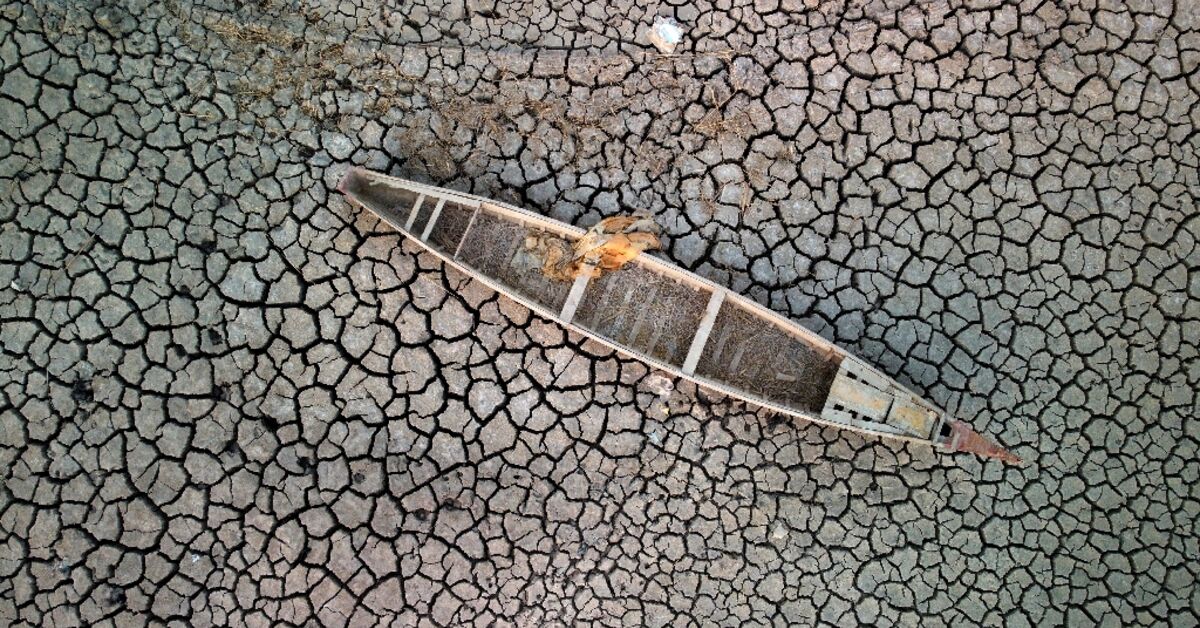
Little rainfall, aggressive heatwaves and worsening drought make the Center East essentially the most water-stressed area on the planet, with local weather change threatening to displace thousands and thousands of individuals.
Hussein Abu Saddam, head of the farmers’ syndicate in Egypt which is internet hosting the COP27 international local weather summit in November, advised AFP he’s already witness to a climate-induced exodus from the countryside.
Agriculture in Egypt — “some of the arid nations on the planet” — has grown even much less worthwhile due to new climate-linked hazards equivalent to “the looks of recent parasites”, he stated.
“Younger individuals from rural areas are migrating overseas or to huge cities to work in trade.”
In keeping with the UN refugee company (UNHCR), “roughly 90 p.c of refugees come from nations which might be essentially the most weak and least able to adapt to the impacts of local weather change”.
“If individuals cannot farm, if individuals cannot work, if individuals cannot discover meals, they’ve few alternate options to displacement,” Amy Pope, deputy director of the Worldwide Group for Migration (IOM), advised AFP.
In 2021, pure disasters compelled “practically three million individuals” to go away their houses in Africa and the Center East, she stated.
“And the scenario is simply going to worsen.”
– Rising sea stage –
By 2060, Egypt’s already stretched agricultural sector may shrink by as a lot as 47 p.c, researchers predict.
Along with “the decline in agricultural manufacturing”, rural-urban migration can be fed by “the attractiveness of city life, the town and companies which might be accessible there”, in line with Florian Bonnefoi, a analysis fellow on the Centre for Financial, Authorized and Social Examine and Documentation (CEDEJ) in Cairo.
Globally, the World Financial institution estimates that by 2050, if nothing is completed to forestall it, there will likely be 216 million individuals internally displaced by local weather change, together with 19.3 million in North Africa.
Some seven p.c of individuals in North Africa — the place densely populated coastlines are among the many world’s most threatened by rising waters — stay lower than 5 metres (16 ft) above sea stage, in line with the European Institute of the Mediterranean (IEMed).
As coastlines are affected, populations will naturally converge on huge cities: Cairo, Algiers, Tunis, Tripoli, the Casablanca-Rabat space and Tangier.
However these “hotbeds of local weather migration”, the World Financial institution warns, are themselves weak to rising waters.
Within the Egyptian metropolis of Alexandria, for instance, two million individuals — practically a 3rd of its inhabitants — may very well be displaced and 214,000 jobs misplaced if the ocean stage rises by half a metre.
– ‘Violent battle’ –
Local weather-induced city migration can “improve the stress on pure assets”, in line with economist Assem Abu Hatab, “thus resulting in social tensions and violent battle” in a area the place agriculture at present accounts for 22 p.c of employment.
Already in Sudan, tribal clashes over entry to water and land go away a whole bunch useless yearly. In simply two days in October, no less than 200 individuals died when violence erupted within the southern Blue Nile state.
In keeping with UNICEF, of the 17 most water-scarce nations on the planet, 11 are within the Center East or North Africa.
In Iraq, 20 p.c of the nation’s contemporary water may disappear if the world warms by “one extra diploma” and rainfall decreases an extra 10 p.c, in line with the World Financial institution.
A 3rd of agricultural land may very well be disadvantaged of irrigation, creating acute shortages for the nation’s inhabitants of 42 million.
Jordan, one of many world’s driest nations, needed to double its water imports from Israel in 2021, and the blockaded Gaza Strip has for years suffered power water shortages.
The worldwide group has dedicated — first in Copenhagen after which in Paris — “to assist creating nations adapt to the influence of local weather change”, together with by supporting “completely different mechanisms for farming and water administration”, in line with Pope.
To be able to assist communities “discover different jobs and thus different sources of earnings” and stem local weather migration, these monetary commitments should now be saved.



